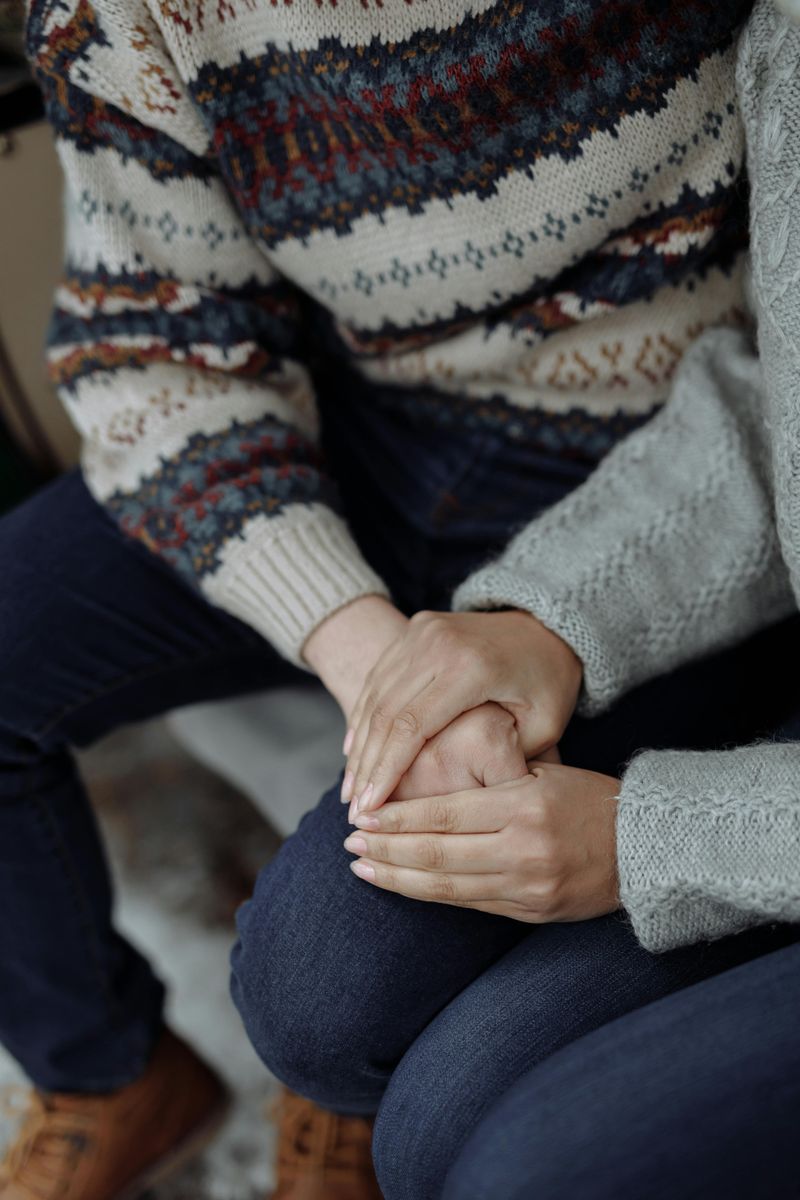Sometimes what feels like love isn’t actually love at all. Trauma bonds happen when someone confuses intense emotions and drama with real connection, and these relationships can feel impossible to leave, even when they hurt.
Understanding the difference between a trauma bond and true love can help you recognize unhealthy patterns and protect your emotional well-being.
1. Confusing Intensity with Passion

Relationships built on trauma bonds feel like a constant rollercoaster ride, with extreme highs and devastating lows that leave you breathless. You might believe this emotional chaos means the connection is deep and meaningful. But real love brings steady warmth, not constant drama.
Healthy relationships feel calm and safe most of the time, with partners who communicate respectfully even during disagreements. The intensity in trauma bonds comes from unpredictability and fear, not genuine passion. When your stomach churns every time your phone buzzes, that’s anxiety, not butterflies.
True love allows you to feel peaceful and secure, knowing your partner respects your boundaries and feelings consistently.
2. Mistaking Jealousy for Care

When someone constantly checks your phone, questions who you’re with, or gets upset about your friendships, they might call it love. This possessive behavior actually reveals insecurity and control, not affection. Genuine care means trusting your partner and wanting them to have fulfilling relationships outside the romance.
Jealousy in trauma bonds often escalates to isolation, where you gradually lose contact with friends and family. Your partner might say things like they just love you so much they can’t stand sharing you. That’s manipulation dressed up as devotion.
Loving partners encourage your independence and celebrate your other relationships because they know healthy people need community and support beyond just one person.
3. Cycling Through Breakups and Makeups

Breaking up and getting back together repeatedly creates an addictive pattern that tricks your brain into thinking the relationship is special. Each reunion releases feel-good chemicals that make the bond feel stronger, even though nothing actually changes. This cycle keeps you hooked without real progress or healing.
After every breakup, your partner might promise to change, shower you with gifts, or write heartfelt apologies. These honeymoon periods feel incredible but never last long before the same problems resurface. The pattern becomes exhausting but strangely familiar.
Stable relationships don’t require constant breakups to feel exciting or meaningful. Partners work through issues together without threatening to leave every time conflict arises.
4. Believing You Can Fix Them

You might think being needed is the same as being loved, especially when someone shares their pain with you. That urge to rescue or fix them fuels a dynamic where you give way more than you get.
Trauma bonds thrive when one person takes on the role of rescuer while the other remains stuck in destructive patterns. You excuse bad behavior because of their difficult childhood or past relationships. However, everyone is responsible for their own healing journey.
Real partners support each other’s growth but don’t sacrifice their own well-being trying to fix someone who isn’t ready to change themselves.
5. Normalizing Hot and Cold Treatment

One day your partner is affectionate and attentive, the next they’re distant and cold without explanation. This unpredictable behavior creates confusion that keeps you constantly trying to earn back their warmth. You start walking on eggshells, analyzing every word and action.
The intermittent reinforcement of affection is incredibly powerful and addictive, similar to gambling. You never know when you’ll get the loving version of your partner, so you keep trying. This inconsistency is emotional manipulation, not mysterious complexity.
Dependable partners show up consistently with their affection and communication. They don’t withdraw love as punishment or keep you guessing about where you stand in the relationship every single day.
6. Accepting Apologies Without Change

Your partner says sorry after every hurtful incident, often with tears and promises that it will never happen again. These apologies feel sincere in the moment, making you believe things will improve. But weeks or days later, the same harmful behavior returns like clockwork.
Words mean nothing without consistent action and genuine effort to change. Trauma bonds rely on empty apologies that temporarily ease guilt without requiring actual transformation. You forgive repeatedly, hoping this time will be different, but the pattern continues.
Authentic love includes accountability and visible efforts to grow and improve. Real apologies come with changed behavior, not just emotional speeches that manipulate you into staying through another cycle of hurt.
7. Feeling Responsible for Their Emotions

Constantly tracking your partner’s moods and adjusting to avoid their anger can take a huge toll. You feel responsible for their feelings and guilty when they’re upset, even when it’s not your fault. It’s exhausting.
In trauma bonds, one person’s feelings dominate the entire relationship dynamic. You might cancel plans with friends because your partner seems sad, or you avoid certain topics to prevent arguments. Your own needs and emotions take a backseat.
Healthy relationships involve two people who manage their own emotions while supporting each other. Nobody should feel like they’re constantly preventing an emotional explosion or managing another adult’s feelings every single day.

Comments
Loading…